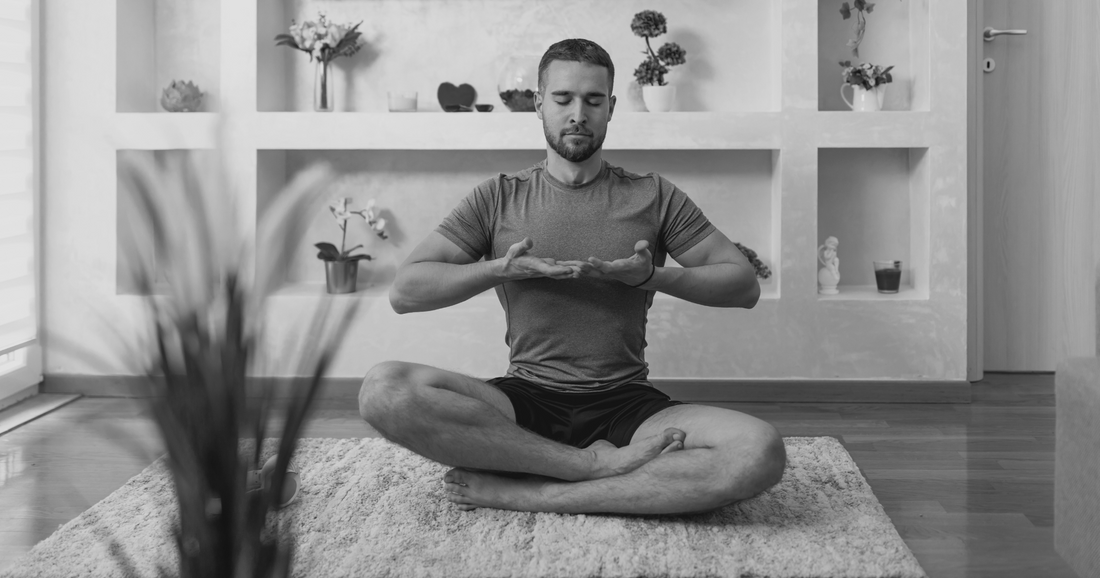
Power of Breathwork: Reduce Anxiety in Just 5 Minutes
Share
Anxiety can feel sudden and overwhelming, heart racing, breath fast, mind spinning. But did you know that just five minutes of intentional breathwork can calm your body and mind? Backed by science and recommended by health experts, breathwork is one of the fastest, simplest ways to ease anxiety, no special equipment, no expensive therapy, just your breath.
What Is Breathwork?
Breathwork refers to structured breathing exercises that focus on controlling how you inhale, exhale, and sometimes pause. It includes practices like:
- Cyclic sighing
- Diaphragmatic (belly) breathing
- 4-7-8 breathing
- Box breathing
- Alternate nostril breathing
- Moon (left-nostril) breathing
These techniques help shift your nervous system from fight-or-flight mode into rest-and-digest, lowering stress and calming your mind.
Why 5 Minutes of Breathwork Works
1. Quick Activation of the Parasympathetic System
Your nervous system has two modes: sympathetic (stress alert) and parasympathetic (calm rest). Slow, controlled breathing instantly activates the parasympathetic system, lowering heart rate, blood pressure, and cortisol levels .
2. Clinically Proven to Reduce Anxiety
- A Stanford study found that five minutes of cyclic sighing each day significantly lowered anxiety and improved mood, outperforming mindfulness meditation.
- A large meta-analysis showed breathwork had a moderate, statistically meaningful effect on lowering anxiety and depression.
- In a controlled clinical review, breathwork interventions helped people with anxiety disorders improve their symptoms.
3. Easy to Learn, Hard to Forget
Unlike some wellness tools, breathwork takes no gear or special setup. A simple five-minute routine can be done anywhere: at your desk, in your car, or in bed. NHS and Harvard Health confirm structured breathing can reduce stress quickly and safely .
How Breathwork Reduces Anxiety
a) Regulates Physical Responses
Stress makes your breathing shallow and fast (hyperventilation), which increases anxiety. Breathwork balances your breathing, reducing symptoms like dizziness and lightheadedness.
b) Calms Brain Activity
Focusing on your breath shifts your brain toward calm, activating parts tied to parasympathetic function. This reduces rumination and activates brain areas linked to relaxation .
c) Improves Autonomic Balance
Slow breathing boosts heart rate variability (HRV), a marker of stress resilience. Higher HRV is linked to better mood and health.
What Five-Minute Breathwork Looks Like
When you’re committing even a few minutes a day to breathwork, the right gear matters. Built By Battle’s mindfulness clothing supports you during moments of calm, focus, and restored energy. Our wellness clothing is comfortable, breathable, and made to keep you grounded wherever you pause to breathe.
You don’t need complicated practices to get results. Here are some proven, easy techniques:
1. Cyclic Sighing (Stanford Method)
Inhale deeply twice.
Exhale slowly, fully.
Continue for five minutes.
Why it works: Lengthened exhalations powerfully activate relaxation. In the Stanford trial, this technique improved mood and lowered anxiety more than balanced breathing or simple mindfulness.
2. 4-7-8 Breathing
- Breathe in for 4 seconds.
- Hold for 7 seconds.
- Exhale for 8 seconds.
- Repeat for five minutes.
Why it works: This ratio is easy to follow and helps pause racing thoughts. It slows heart rate and calms the nervous system.
3. Box Breathing
- Inhale 4 seconds.
- Hold 4.
- Exhale 4.
- Hold 4.
- Repeat.
Why it helps: The predictable pattern provides structure and control. It’s used by schools and workplaces to curb tension .
4. Diaphragmatic Breathing
- Place hand on your belly.
- Inhale deeply, belly rises, not chest.
- Exhale slowly.
- Continue for five minutes.
Why it matters: Belly breathing rewires breathing habits and boosts HRV. Studies show it eases anxiety and supports lung and heart health.
5. Moon Breathing (Left-Nostril Breath)
- Inhale through left nostril.
- Exhale right.
- Continue mindfully for five minutes.
Why it works: This yogic practice triggers the parasympathetic branch, helping with emotional stability and nighttime anxiety.
You can customize your routine or rotate techniques based on what feels right that day.
When Breathwork Helps Most
a) Morning Reset
Start your day grounded and calm. Do five minutes before screens, or while waiting for your coffee.
b) Workday Break
Take a midday breath break where you pause to reset, boosting focus and mental energy.
c) Pre-Sleep Ritual
Five slow breaths at night ease tension and promote restful sleep, especially helpful if anxiety keeps you up.
d) Acute Anxiety
When panic strikes, try cyclic sighing or box breathing to slow your system and regain control.
What the Science Tells Us
Evidence Type Findings Stanford cyclic sighing Reduced anxiety and enhanced mood in five minutes. Meta-analysis (2023) Breathwork had g = –0.32 effect on anxiety Clinical review Breathing interventions helped diagnosed anxiety sufferers NHS & Harvard advice Regular breathing supports fight-or-flight regulation Other benefits Boosts HRV, lowers blood pressure, improves sleep & mood
The evidence is clear: five minutes of breathwork daily offers meaningful anxiety relief and builds lasting stress resilience.
Tips for Success
- Choose your method: Pick one or alternate.
- Set a timer: Five minutes is enough; use a calm chime.
- Get comfortable: Sit quietly or lie down.
- Focus inward: Let go of thoughts; return focus gently to breath.
- Practice daily: Consistency makes change possible.
- Track results: Note mood, tension, sleep. Adjust as needed.
- Combine methods: Try breathing + guided meditation or stretching.
- Be patient: Results grow over days and weeks, stick with it.
Beyond 5 Minutes: Building Routine
Once comfortable, expand breathwork’s benefits by:
- Adding sessions: Try two or three daily.
- Pairing with mindfulness: Add simple meditation.
- Combining movement: Pair with yoga.
- Using reminders: Build it into your schedule.
- Joining groups: Take online sessions or in-person classes.
- Working with pros: Consult therapists or coaches for therapy-level interventions.
Precautions
Breathwork is safe for most people. But if you have asthma, COPD, heart conditions, or pregnancy:
- Start slowly.
- Don’t hold breath too long (e.g., shorten 7-second holds to 3–4).
- Sit or lie down if lightheaded.
- Talk to your doctor if you have health conditions.
Final Thoughts
Breathwork is a powerful, no-cost, scientifically proven way to manage anxiety quickly. Just five minutes a day can shift you from stress to calm, improve resilience, and boost mood.
Whether you're new to wellness or looking for fast anxiety relief, breathwork fits any lifestyle. Start today, set a timer, find a technique, and breathe into calm.
